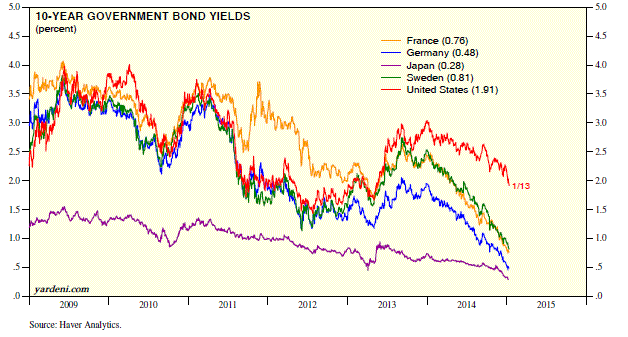
When investing, stock dividends can provide you with a reliable source of income. A dividend can also increase the value of your stock.
You should also remember that some stocks do not pay dividends. Berkshire Hathaway, for example (BRKB –0.39%), does not pay dividends because it prefers to reinvest their profits into growth rather than distributing them to shareholders. Apple Inc. AAPL -0.99%, on the other hand, is known as a strong company with high dividends. This has made it one of Warren Buffetts favorites.
The Oracle of Omaha is well known for his long-standing relationship with both names. He first acquired them in the late 80s. Berkshire has a large majority of its holdings in these two companies.
Berkshire continues to increase its stake in Ally Financial, which has recently increased its dividends by 20%. It also pays a healthy yield of 5.1%. Berkshire now owns the fourth largest share of Ally Financial (NYSE: ALY -0.03%), which recently increased its dividend by 20% and pays out a healthy 5.1% yield.

Berkshire's clever stock purchase has helped Ally maintain its dividend growth of 4.7% each year. The company's financial strength is also improving, according to Argus Research analyst Jim Kelleher, who recently upgraded the stock to a Buy rating and $48 price target.
Chevron is another one of Warren Buffetts best dividend stocks. Over the next year, Berkshire will receive $929 million in dividend income from this energy giant. If oil and gas prices continue to rise, then the dividends will increase.
The stock's dividend payouts have been increasing for many years, despite the fact that it isn’t as popular as some other energy companies on this list. It's also a great option for investors who are looking to receive a dividend.
Kraft Heinz & Co (NASDAQ: KHC -0.23%)
Berkshire Hathaway holds a substantial stake in this company. This brand is an American staple. This brand's reliable, high-quality product is an investment that will likely continue to pay dividends for many years.
This company is the best example of Buffett’s concept of value investing. Over the past 20 years, Berkshire Hathaway has outperformed the S&P 500 by 9.9% per year. In that time period, Berkshire's total return was 3,787.464%, which is more than double S&P’s 24,708%.

The stock is in a strong position to pay out quarterly dividends. It's also well-positioned for dividend growth in the future, as it has a forward price-to-FCF ratio (0.7) and a current P/B ratio of 1.
BNY Mellon has been around a long while. Investors will find it safe to invest in BNY Mellon because of its solid dividends.
Buffett said that BNY Mellon was still undervalued despite its current price-tobook ratio (0.8). Its dividend may be increased in the near future if it is able to increase its organic volume.
FAQ
Why is a stock security?
Security is an investment instrument whose value depends on another company. It may be issued either by a corporation (e.g. stocks), government (e.g. bond), or any other entity (e.g. preferred stock). The issuer promises to pay dividends and repay debt obligations to creditors. Investors may also be entitled to capital return if the value of the underlying asset falls.
Can you trade on the stock-market?
Everyone. All people are not equal in this universe. Some people have more knowledge and skills than others. They should be rewarded for what they do.
Other factors also play a role in whether or not someone is successful at trading stocks. If you don't understand financial reports, you won’t be able take any decisions.
These reports are not for you unless you know how to interpret them. You must understand what each number represents. Also, you need to understand the meaning of each number.
This will allow you to identify trends and patterns in data. This will enable you to make informed decisions about when to purchase and sell shares.
If you're lucky enough you might be able make a living doing this.
How does the stock markets work?
A share of stock is a purchase of ownership rights. Shareholders have certain rights in the company. He/she may vote on major policies or resolutions. He/she can demand compensation for damages caused by the company. The employee can also sue the company if the contract is not respected.
A company cannot issue more shares that its total assets minus liabilities. This is called capital adequacy.
A company with a high capital sufficiency ratio is considered to be safe. Companies with low ratios of capital adequacy are more risky.
What is a mutual funds?
Mutual funds consist of pools of money investing in securities. They offer diversification by allowing all types and investments to be included in the pool. This reduces the risk.
Managers who oversee mutual funds' investment decisions are professionals. Some funds let investors manage their portfolios.
Mutual funds are preferable to individual stocks for their simplicity and lower risk.
What is an REIT?
An REIT (real estate investment trust) is an entity that has income-producing properties, such as apartments, shopping centers, office building, hotels, and industrial parks. These are publicly traded companies that pay dividends instead of corporate taxes to shareholders.
They are similar to corporations, except that they don't own goods or property.
What are the advantages to owning stocks?
Stocks are more volatile that bonds. Stocks will lose a lot of value if a company goes bankrupt.
However, share prices will rise if a company is growing.
Companies usually issue new shares to raise capital. This allows investors to purchase additional shares in the company.
To borrow money, companies can use debt finance. This allows them to get cheap credit that will allow them to grow faster.
If a company makes a great product, people will buy it. As demand increases, so does the price of the stock.
The stock price should increase as long the company produces the products people want.
How can someone lose money in stock markets?
The stock exchange is not a place you can make money selling high and buying cheap. It's a place you lose money by buying and selling high.
The stock market is for those who are willing to take chances. They are willing to sell stocks when they believe they are too expensive and buy stocks at a price they don't think is fair.
They believe they will gain from the market's volatility. But they need to be careful or they may lose all their investment.
Can bonds be traded
Yes they are. Bonds are traded on exchanges just as shares are. They have been traded on exchanges for many years.
The main difference between them is that you cannot buy a bond directly from an issuer. A broker must buy them for you.
It is much easier to buy bonds because there are no intermediaries. This also means that if you want to sell a bond, you must find someone willing to buy it from you.
There are many kinds of bonds. Some pay interest at regular intervals while others do not.
Some pay interest quarterly while others pay an annual rate. These differences make it easy to compare bonds against each other.
Bonds are great for investing. In other words, PS10,000 could be invested in a savings account to earn 0.75% annually. You would earn 12.5% per annum if you put the same amount into a 10-year government bond.
You could get a higher return if you invested all these investments in a portfolio.
Statistics
- For instance, an individual or entity that owns 100,000 shares of a company with one million outstanding shares would have a 10% ownership stake. (investopedia.com)
- Ratchet down that 10% if you don't yet have a healthy emergency fund and 10% to 15% of your income funneled into a retirement savings account. (nerdwallet.com)
- Our focus on Main Street investors reflects the fact that American households own $38 trillion worth of equities, more than 59 percent of the U.S. equity market either directly or indirectly through mutual funds, retirement accounts, and other investments. (sec.gov)
- Even if you find talent for trading stocks, allocating more than 10% of your portfolio to an individual stock can expose your savings to too much volatility. (nerdwallet.com)
External Links
How To
How to Trade in Stock Market
Stock trading involves the purchase and sale of stocks, bonds, commodities or currencies as well as derivatives. Trading is French for traiteur. This means that one buys and sellers. Traders trade securities to make money. They do this by buying and selling them. It is one of oldest forms of financial investing.
There are many different ways to invest on the stock market. There are three basic types of investing: passive, active, and hybrid. Passive investors only watch their investments grow. Actively traded investors seek out winning companies and make money from them. Hybrid investor combine these two approaches.
Index funds track broad indices, such as S&P 500 or Dow Jones Industrial Average. Passive investment is achieved through index funds. This method is popular as it offers diversification and minimizes risk. You just sit back and let your investments work for you.
Active investing involves picking specific companies and analyzing their performance. Active investors will analyze things like earnings growth rates, return on equity and debt ratios. They also consider cash flow, book, dividend payouts, management teams, share price history, as well as the potential for future growth. They decide whether or not they want to invest in shares of the company. If they feel the company is undervalued they will purchase shares in the hope that the price rises. They will wait for the price of the stock to fall if they believe the company has too much value.
Hybrid investing combines some aspects of both passive and active investing. Hybrid investing is a combination of active and passive investing. You may choose to track multiple stocks in a fund, but you want to also select several companies. This would mean that you would split your portfolio between a passively managed and active fund.